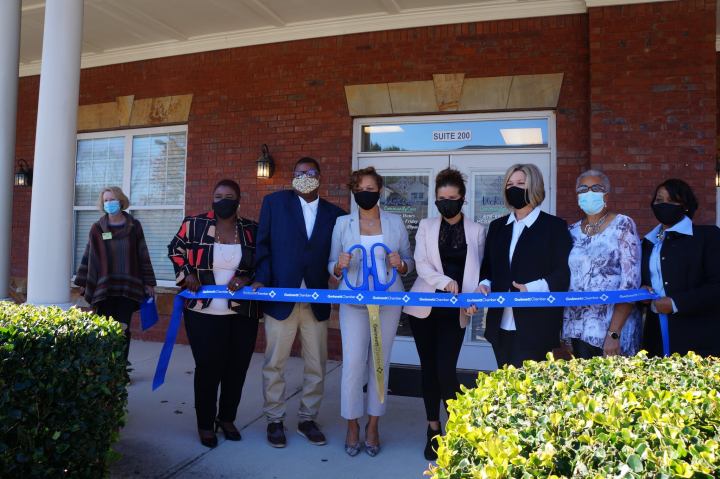
Pandemic spurs transformations in the adult day care industry
Pandemic spurs transformations in the adult day care industry

The McKinley Caregiver Resource Center in Snellville, Georgia, was seeing a growing demand for adult day care in the years before the COVID-19 pandemic began.
“It was mainly comprised of medical oversight and then activities throughout the day,” said Aysha Treadwell, McKinley’s owner. “I expanded the Center and then we could offer services to approximately 55 to 60 a day.”
Her clients paid about $85 per person, per day. One of those clients was Diane Fuller’s 84-year old father, who suffered a stroke and now lives with dementia.
“They really interacted with their clients,” Fuller said. “They tried to get them involved in games like bingo, memory [and] history. They did so much with them.”
For six years, Fuller drove about 35 minutes to McKinley but then in the pandemic, it closed.
“We had about 20 staff,” said Treadwell. “I couldn’t see a way for us to open and keep everyone safe. That’s when we decided to transition what we were offering.”
Many adult day care centers had to close at points after the pandemic began. And when those that were able to keep going re-opened, they had to take precautions to keep their workers and their older clients safe from the disease. Some, like McKinley’s, have had to make a shift in what they offer.
With a reduced staff of five, the center delivered home cooked meals and offered transportation services for a fee, about $3.00 a mile.
Bill Zagorski, who chairs the National Adult Day Services Association, said this kind of diversification of services is a new trend.
“There is certainly a drive from some programs to start including more home-based services,” he said.
Part of this includes giving family caregivers support services like food delivery, transportation, and increased health care options.
“The ability to support family caregivers is a tenant of adult day services,” said Zagorski. “It has just highlighted the fact that family caregivers are often left behind.”
According to the Centers for Disease Control and Prevention (CDC), there are currently 7 potential family caregivers for every adult 65 years or older who needs assistance. But by 2030, the number of potential family caregivers will drop to just four.
There’s a lot happening in the world. Through it all, Marketplace is here for you.
You rely on Marketplace to break down the world’s events and tell you how it affects you in a fact-based, approachable way. We rely on your financial support to keep making that possible.
Your donation today powers the independent journalism that you rely on. For just $5/month, you can help sustain Marketplace so we can keep reporting on the things that matter to you.











